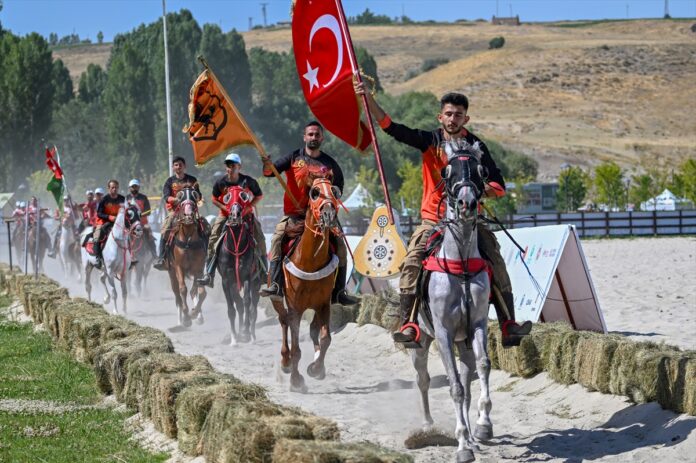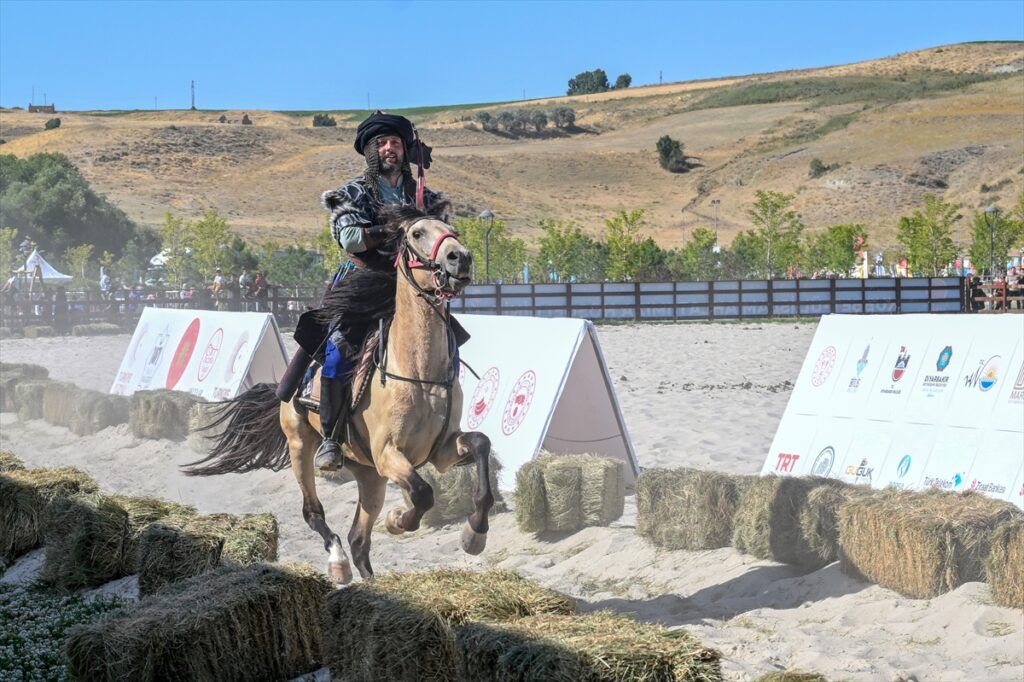Türkiye is marking the 952nd anniversary of the Battle of Manzikert, a pivotal historic victory for the Turks in Anatolia which paved the way for the end of the Byzantine Empire and the rise of the Muslim Seljuks and later Ottomans.
Fought on August 26, 1071, between the Byzantine Empire and the Seljuk Turks, the battle stands as a turning point in history, where the Byzantine Empire’s defeat at the hands of the Seljuk Turks reshaped the geopolitical and cultural landscape of the Eastern Mediterranean.
“I congratulate (the nation on) the 952nd anniversary of the Victory at Manzikert, the starting point of the chain of victories that took us to Vienna,” President Recep Tayyip Erdogan said on X, formerly known as Twitter, referring to the Battle of Vienna about six centuries later when the Ottoman Empire reached its territorial height.
“I commemorate Sultan Alp Arslan and his army, and all our heroes who made Anatolia our homeland, with mercy and gratitude,” the president added.
First Lady Emine Erdogan also commemorated Alp Arslan, then-sultan of the Seljuk Empire which achieved the historic victory.
“History changed when the gateway to Anatolia was opened to the Turks 952 years ago. The spirit of unity and solidarity of the victory at Manzikert, inherited from our distinguished forebears, will continue to guide future generations,” she said on X.
And Parliament Speaker Numan Kurtulmus also marked the victory of Manzikert as “one of the pages of pride in our glorious history.”
Subscribe to our newsletter and stay updated on the latest news and updates from around the Muslim world!
“Our beloved nation continues its progress with the same consciousness and determination, inspired by our ancestors who made Anatolia our homeland and whose past is full of heroism,” Kurtulmus said on X.
At the time of the Battle of Manzikert, the Byzantine Empire, though a shadow of its former Roman glory, still held significant influence over vast territories. However, the Seljuk Turks, a formidable group of Central Asian origin, had been steadily expanding their influence across the region.
The clash at Manzikert was not just a collision of two armies but a confrontation of strategies and tactics. The Byzantine forces, led by Emperor Romanos IV Diogenes, comprised a mix of elite tagmata (professional soldiers) and provincial levies.
In contrast, the Seljuk Turks, under the leadership of Alp Arslan, showcased their prowess in mounted archery and guerilla warfare. The Seljuks leveraged their mobility and archery skills to disrupt the Byzantine formation and create confusion.
The battle itself was fierce and chaotic. Despite the Byzantines having numerical superiority, the Seljuk tactics proved effective in disorienting their enemy.
A pivotal moment occurred when a Turkish “feigned retreat” led a substantial portion of the Byzantine forces to break formation and pursue, only to be ambushed by the Turks. This strategic maneuver sealed the fate of the Byzantine army.
The aftermath of the Battle of Manzikert reverberated across the region and down the corridors of history. The Byzantine defeat had far-reaching consequences, both immediate and long-term. Emperor Romanos IV was captured, and the Byzantine Empire was forced to cede significant territories to the Seljuks. This loss of land weakened Byzantine defenses and opened the door for further Seljuk expansion.
The battle also sowed discord within the Byzantine leadership, leading to political instability and a series of power struggles. These internal conflicts further weakened the empire’s ability to mount a coherent defense against external threats.
The influx of Turkic and Muslim populations into the newly acquired Seljuk territories led to a transformation in the demographics and religious landscape of Anatolia. This shift paved the way for the establishment of the Sultanate of Rum, a significant political entity in the region.
Furthermore, the victory at Manzikert enhanced the prestige of the Seljuk Turks in the Islamic world. The capture of a Byzantine emperor and the acquisition of valuable spoils of war boosted the Seljuks’ image as formidable warriors, which in turn attracted more Turkish tribes to their cause.
This event is also seen as a precursor to the Crusades. The weakened Byzantine Empire’s appeal for military aid from Western Europe laid the groundwork for the First Crusade, as Pope Urban II saw an opportunity to unite Christian forces against the expanding Muslim influence in the region.
SOURCE: AA and 5PILLARS
























